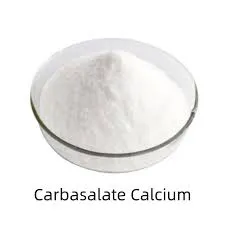- Afrikaans
- Albanian
- Amharic
- Arabic
- Armenian
- Azerbaijani
- Basque
- Belarusian
- Bengali
- Bosnian
- Bulgarian
- Catalan
- Cebuano
- Corsican
- Croatian
- Czech
- Danish
- Dutch
- English
- Esperanto
- Estonian
- Finnish
- French
- Frisian
- Galician
- Georgian
- German
- Greek
- Gujarati
- Haitian Creole
- hausa
- hawaiian
- Hebrew
- Hindi
- Miao
- Hungarian
- Icelandic
- igbo
- Indonesian
- irish
- Italian
- Japanese
- Javanese
- Kannada
- kazakh
- Khmer
- Rwandese
- Korean
- Kurdish
- Kyrgyz
- Lao
- Latin
- Latvian
- Lithuanian
- Luxembourgish
- Macedonian
- Malgashi
- Malay
- Malayalam
- Maltese
- Maori
- Marathi
- Mongolian
- Myanmar
- Nepali
- Norwegian
- Norwegian
- Occitan
- Pashto
- Persian
- Polish
- Portuguese
- Punjabi
- Romanian
- Russian
- Samoan
- Scottish Gaelic
- Serbian
- Sesotho
- Shona
- Sindhi
- Sinhala
- Slovak
- Slovenian
- Somali
- Spanish
- Sundanese
- Swahili
- Swedish
- Tagalog
- Tajik
- Tamil
- Tatar
- Telugu
- Thai
- Turkish
- Turkmen
- Ukrainian
- Urdu
- Uighur
- Uzbek
- Vietnamese
- Welsh
- Bantu
- Yiddish
- Yoruba
- Zulu
10 月 . 22, 2024 12:58 Back to list
Effective Use of Tylan Injection in Canine Treatments and Care Strategies
Understanding Tylan Injection for Dogs
Tylan, also known as Tylosin, is an antibiotic that is commonly used in veterinary medicine. Primarily derived from the bacterium Streptomyces fradiae, Tylan is effective against a variety of bacterial infections. Its use in dogs has gained popularity for treating specific conditions, particularly those involving the gastrointestinal tract. This article will provide an overview of Tylan injection, its uses, benefits, side effects, and the considerations pet owners should be aware of when seeking veterinary care.
What is Tylan?
Tylan, in its injectable form, is a macrolide antibiotic. It works by inhibiting bacterial protein synthesis, effectively stunting the growth of bacteria. While commonly used in livestock for preventing infections and promoting growth, Tylan also finds its place in treating canine ailments. It is particularly useful for certain gastrointestinal infections, chronic enteritis, and conditions that may require prolonged antibiotic therapy.
Uses of Tylan Injection in Dogs
Veterinarians may prescribe Tylan for several conditions
1. Chronic Diarrhea One of the most common uses of Tylan in dogs is for treating chronic diarrhea, particularly when it is associated with intestinal infections such as those caused by Campylobacter or other bacteria.
2. Colitis Another indication for Tylan administration is colitis, which is an inflammation of the colon. Colitis may manifest as diarrhea, pain, and discomfort. Tylan can help in reducing inflammation and bacterial load in the gut.
3. Bacterial Infections Aside from gastrointestinal issues, Tylan can also be effectively used to manage other bacterial infections in dogs, particularly those that do not respond well to other antibiotics.
tylan injection for dogs

Benefits of Tylan Injection
One of the primary benefits of Tylan is its effectiveness in treating hard-to-manage bacterial infections. Unlike some antibiotics, Tylan can be used for extended periods without causing significant side effects. It is also beneficial for dogs that may be resistant to other forms of antibiotic treatment. Additionally, Tylan can help improve the overall health and quality of life for dogs suffering from chronic conditions, allowing them to return to their usual activities more quickly.
Side Effects
While Tylan is generally considered safe for dogs when prescribed by a veterinarian, there can be side effects. Some potential side effects include
- Gastrointestinal Upset Dogs may experience vomiting or diarrhea, particularly when they first start the medication or if the dosage is too high. - Allergic Reactions Although rare, some dogs may show signs of an allergic reaction, which can include itching, swelling, or difficulty breathing. - Injection Site Reactions If administered as an injection, there might be localized pain, swelling, or irritation at the injection site.
It is crucial for dog owners to monitor their pets for any adverse reactions and to report these to their veterinarian immediately.
Considerations and Precautions
Before administering Tylan to your dog, it's essential to consult with a veterinarian. They will conduct a thorough examination and may recommend specific diagnostic tests to understand the underlying cause of the symptoms. Proper dosage is crucial; hence it is vital to follow the veterinarian’s instructions diligently. Pet owners should also discuss any pre-existing medical conditions their dog may have, particularly liver or kidney issues, as these could affect how their pet metabolizes Tylan.
Conclusion
Tylan injection can be a valuable tool in managing specific bacterial infections and gastrointestinal issues in dogs. Its effectiveness combined with a generally favorable safety profile makes it a go-to choice for veterinarians dealing with challenging cases. However, dog owners must maintain close communication with their veterinarians, adhere to treatment protocols, and remain vigilant for any signs of adverse reactions. By doing so, they can help ensure that their furry companions receive the best possible care and return to their happy, healthy selves.
-
The Power of Radix Isatidis Extract for Your Health and Wellness
NewsOct.29,2024
-
Neomycin Sulfate Soluble Powder: A Versatile Solution for Pet Health
NewsOct.29,2024
-
Lincomycin Hydrochloride Soluble Powder – The Essential Solution
NewsOct.29,2024
-
Garamycin Gentamicin Sulfate for Effective Infection Control
NewsOct.29,2024
-
Doxycycline Hyclate Soluble Powder: Your Antibiotic Needs
NewsOct.29,2024
-
Tilmicosin Premix: The Ultimate Solution for Poultry Health
NewsOct.29,2024













